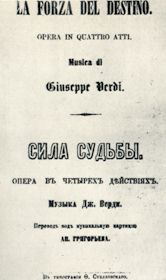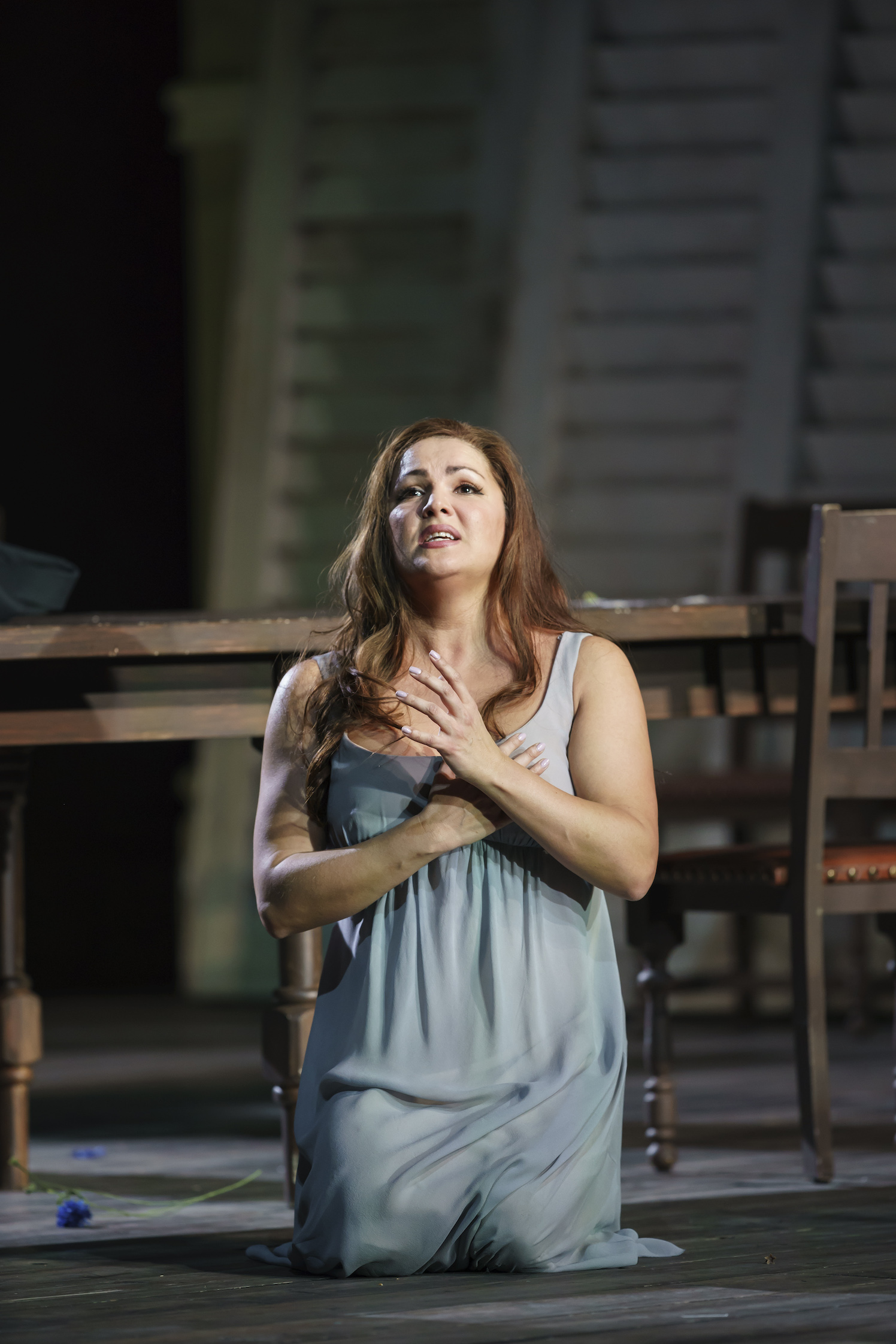A STAR-STUDDED OPENING NIGHT: FORZA AT COVENT GARDEN

The long-awaited opening night of the hottest ticket in arguably the season in the operatic world finally arrived. La Forza del Destino was written by Giuseppe Verdi to a libretto by Francesco Maria Piave had its premiere in St. Petersburg in 1862. There after it underwent some revisions receiving its European premiere in Rome in 1863. The version we hear today was premiered at La Scala in 1869. This has a new overture and a final scene to act 3 following the Carlo/Alvaro duet and a new ending.
The opera begins with a well known overture with the portentous “fate” motif, the three E’s unison in the brass. Act I opens in the mansion of Leonora’s family in Seville. Her lover Don Alvaro, a young noble man from South America who is part Indian settled in Seville where he is not very well thought of. Leonora awaits his arrival as they have planned to elope her father the Marquis of Calatrava being opposed to their match. When Alvaro arrives to fetch Leonora the Marquis unexpectedly enters and threatens Alvaro with death. Alvaro surrenders himself flinging down his pistol which goes off killing the Marquis who dies cursing his daughter.
This was Verdi’s “destiny” at work in a complicated story of misguided and mistaken identity. Leonora takes refuge in a monastery while her brother Don Carlo pursues Alvaro in search of vengeance. Destiny decrees that Leonora and Carlo shall die thanks to a series of improbable accidents and that Alvaro shall live on in remorse.
Christof Loy’s production is set in 20th century Spain and Italy. The design is low key and mainly in black and white. The carnivalesque gypsy scenes are in contrast colourful and lively with some expert choreography by Otto Pichler.

But what of the singing? On many levels it was fully up to expectations. Anna Netrebko in particular as Leonora gives one of the performances of her career. Compared with her other recent parts Aida, Tosca, Adriana and Lady Macbeth, her voice struck me as huge and generous in tone. There was vibrancy and accuracy throughout the registers and surprisingly plummy in the middle and lower registers. In her big aria “Pace pace mio dio” she pulled out all the stops bringing the house down.
https://www.youtube.com/watch?v=MFyYWtS-aDU
As Don Alvaro, Jonas Kaufmann was fully her equal. Pacing himself early on in the opera he opened up in the duets and his big solo to sing some of the grandest moments in the opera. Although Mr. Kaufmann is not an ideal Italianate tenor this particular role suits him perfectly. His duets with Ms. Netrebko were convincing enough but when he paired up with the baritone that was when the sparks really started flying. On top form on opening night was the smouldering high baritone of Ludovic Tézier.
His solo “Urna fatale” brimming with sustained grace and the tenor/baritone duets already mentioned were real high points. Two veteran singers of Italian origin showed how Italian opera really should go. Ferruccio Furlanetto as Padre Guardiano with his booming voice and intense legato singing gave an object lesson. Alessandro Corbelli as Fra Melitone made a skittishly boisterous clergyman.
None of this could be possible without the able music director Antonio Pappano. He has Verdi in his blood and he held the reins of the orchestra convincingly from start to finish. He galvanised the forces of the orchestra of the Royal Opera House to play like those possessed. This was no ordinary night at the opera. A night to remember- a complex and long late Verdi opera, two superstars and one of the best opera orchestras in the world.





